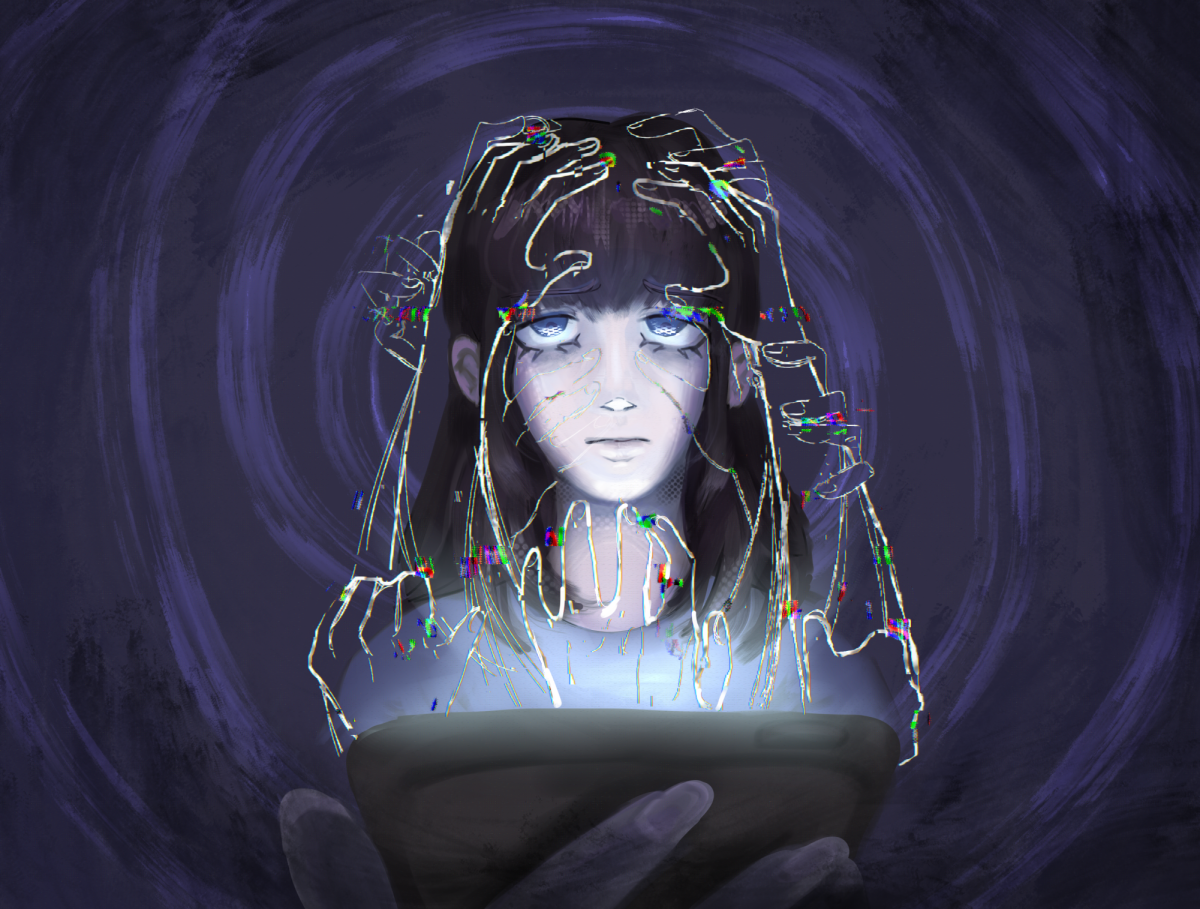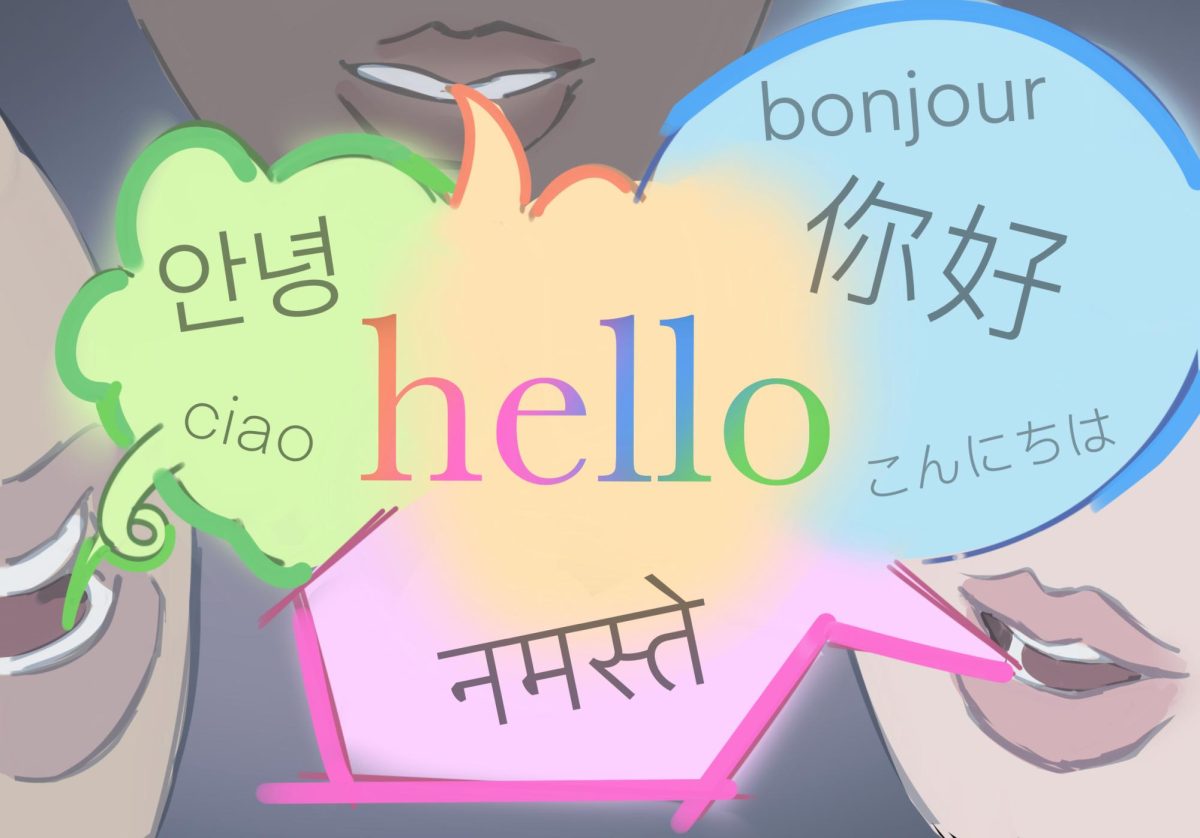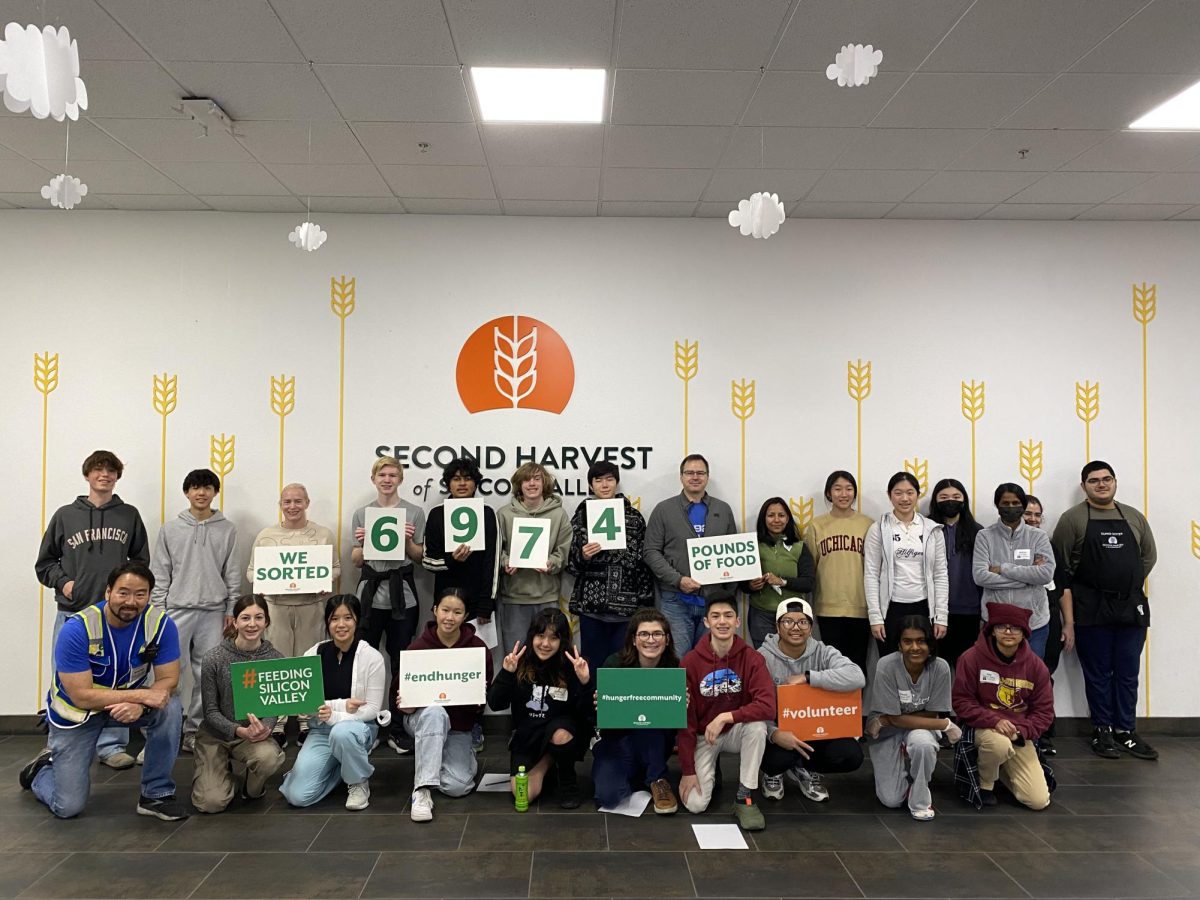In the electric embrace of the 21st century, where every scroll is part of a journey and every click is a portal to another world, social media is woven into everyday life. Yet, beneath the glossy filters and stories lies people hiding behind their social media presence, deteriorating self-worth due to comparison and a growing desire for acceptance.
The average person spends around 2.5 hours every day on social media platforms. Some seek social media as a platform to stay connected with friends and family, bridging geographical gaps and maintaining cherished relationships, while others use it as a hub for information, where they can react to news, trends and updates.
Companies manufacture social media to keep a person glued to their screen, whittling away at users’ attention spans. According to psychologist Gloria Mark, the average attention span of users shrank from two and a half minutes to 47 seconds between 2004 and 2018. Intrinsic features like infinite scrolling systems ensure users will remain online for hours without losing focus due to short videos usually ranging from a few seconds to minutes.
Beyond components like short videos, many apps’ algorithms customize content based on user preferences and interests. Features like ‘for-you’ pages and personalized information feed into the infinite scroll.
“Social media companies understand that they are in the business of keeping you addicted to their product,” upper school AP Psychology teacher Dr. Julie Turchin said. “So they are in the back room asking what is going to bring [the user] back. The more you react to something, the more of that thing they’re going to show you. If it seems you’re starting to drift away from their platform, they’re going to try to send you something super eye-catching to try to get you back in. It’s creepy how good the algorithms are at doing that.”
Algorithms play a significant role in today’s social media landscape, not only shaping feeds but also recommending trending posts, often leading to a surge in user engagement. These trending posts can attract a multitude of viewers, which, while boosting content visibility, also raises concerns about the potential for toxicity in the comment sections. People are also anonymous on social media, which can lead them to act differently than how they would in real life.
Social media anonymity creates toxic comment sections through deindividuation, which explains how individuals perceive themselves as one among the masses and tend to exhibit behaviors they might never engage in otherwise. The internet amplifies this effect.
“The internet allows us to behave in ways that we never would due to being anonymous,” Dr. Turchin said. “I definitely think that can [contribute to online harassment]. You don’t have to look at yourself in the mirror and say, ‘Oh, I’m the one doing that.’ Being behind the screen and not even being able to be identified makes it worse.”
The invisibility of online anonymity provides a cover for people to speak out in ways they wouldn’t with face-to-face interaction. Controversial opinions garner online support. Since people can choose what they watch, they are more likely to choose content where people agree with them. As a result, this causes them to look down upon any other view that is not their own. If backed by similar-minded users, people use extreme language and humor to fit in with other users.
“[Since] you’re anonymous, you can display emotions or do things you wouldn’t do in person,” TikTok user Jessica Wang (11) said. “Also because people react more to comments, others can get angrier. There’s also a lot of young kids on [social media] like teenagers, so it makes sense that people get into more heated arguments.”
Hate comments often stem from jealousy and a lack of self-confidence, according to Dr. Turchin. These issues are often amplified for adolescents, and the fact that most social media platforms leave people anonymous can lead to differences in their behavior.
“People are less afraid to say bad things about other people,” Twitter user Aya Sugaya (10) said. “It’s stuff that they wouldn’t say to their face. Because others don’t know who they are and there aren’t many repercussions, they don’t care about talking smack.”


















![“[Building nerf blasters] became this outlet of creativity for me that hasn't been matched by anything else. The process [of] making a build complete to your desire is such a painstakingly difficult process, but I've had to learn from [the skills needed from] soldering to proper painting. There's so many different options for everything, if you think about it, it exists. The best part is [that] if it doesn't exist, you can build it yourself," Ishaan Parate said.](https://harkeraquila.com/wp-content/uploads/2022/08/DSC_8149-900x604.jpg)




![“When I came into high school, I was ready to be a follower. But DECA was a game changer for me. It helped me overcome my fear of public speaking, and it's played such a major role in who I've become today. To be able to successfully lead a chapter of 150 students, an officer team and be one of the upperclassmen I once really admired is something I'm [really] proud of,” Anvitha Tummala ('21) said.](https://harkeraquila.com/wp-content/uploads/2021/07/Screen-Shot-2021-07-25-at-9.50.05-AM-900x594.png)







![“I think getting up in the morning and having a sense of purpose [is exciting]. I think without a certain amount of drive, life is kind of obsolete and mundane, and I think having that every single day is what makes each day unique and kind of makes life exciting,” Neymika Jain (12) said.](https://harkeraquila.com/wp-content/uploads/2017/06/Screen-Shot-2017-06-03-at-4.54.16-PM.png)








![“My slogan is ‘slow feet, don’t eat, and I’m hungry.’ You need to run fast to get where you are–you aren't going to get those championships if you aren't fast,” Angel Cervantes (12) said. “I want to do well in school on my tests and in track and win championships for my team. I live by that, [and] I can do that anywhere: in the classroom or on the field.”](https://harkeraquila.com/wp-content/uploads/2018/06/DSC5146-900x601.jpg)
![“[Volleyball has] taught me how to fall correctly, and another thing it taught is that you don’t have to be the best at something to be good at it. If you just hit the ball in a smart way, then it still scores points and you’re good at it. You could be a background player and still make a much bigger impact on the team than you would think,” Anya Gert (’20) said.](https://harkeraquila.com/wp-content/uploads/2020/06/AnnaGert_JinTuan_HoHPhotoEdited-600x900.jpeg)

![“I'm not nearly there yet, but [my confidence has] definitely been getting better since I was pretty shy and timid coming into Harker my freshman year. I know that there's a lot of people that are really confident in what they do, and I really admire them. Everyone's so driven and that has really pushed me to kind of try to find my own place in high school and be more confident,” Alyssa Huang (’20) said.](https://harkeraquila.com/wp-content/uploads/2020/06/AlyssaHuang_EmilyChen_HoHPhoto-900x749.jpeg)












Sam Lepler • Mar 25, 2024 at 3:05 pm
This is a great article, especially the part about how anonymity breeds contempt and enables people to attack each other in ways they wouldn’t face to face. This principle extends beyond social media as well, as any anonymous forum will be prone to these kind of behaviors.
Clearly, face to face communication along with civil dialogue seems the most effective medium for building empathy, understanding multiple perspectives, working out conflicts, and engaging in a diverse (both identity and thought) society.
This should be a guiding principle in all contexts…